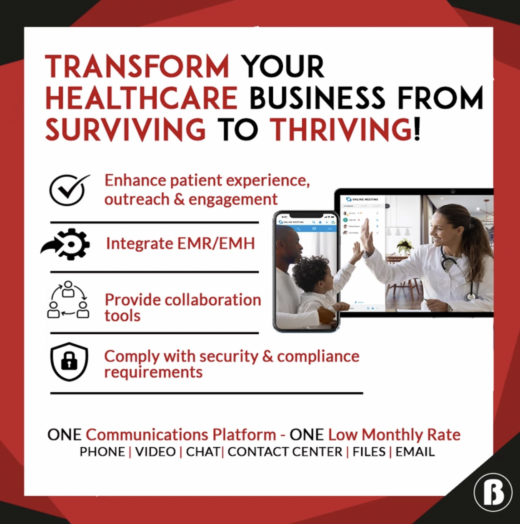Understanding the Importance of IT Services in Healthcare
IT services play a crucial role in the healthcare sector by ensuring that medical facilities operate efficiently and securely. These services encompass a wide range of solutions, including data management, software support, and infrastructure maintenance, all tailored to meet the unique needs of healthcare providers.
For instance, the implementation of electronic health records (EHR) systems allows for streamlined patient data access, improving both care quality and operational efficiency. Additionally, robust IT support helps healthcare organizations comply with regulations like HIPAA, safeguarding patient information while enhancing service delivery.
Managed Print Services: Optimizing Healthcare Operations
Managed print services (MPS) are increasingly vital for healthcare organizations looking to optimize their operational efficiency. MPS involves the assessment, management, and optimization of printing resources, ensuring that healthcare providers can focus on patient care rather than administrative burdens.
By integrating MPS, healthcare facilities can reduce printing costs, improve document security, and enhance workflow processes. For example, a hospital that adopts MPS may see a significant reduction in paper waste and operational costs, allowing more resources to be allocated towards patient care and technological advancements.
Emerging Trends in Healthcare Technology
Staying updated on emerging trends in healthcare technology is essential for providers aiming to enhance patient care and operational efficiency. Innovations such as telemedicine, artificial intelligence, and wearable health devices are transforming how healthcare services are delivered.
For example, telemedicine has surged in popularity, enabling patients to consult healthcare professionals remotely, which is particularly beneficial during times of crisis, such as the COVID-19 pandemic. Understanding these trends allows healthcare providers to adapt and implement new technologies that can significantly improve patient outcomes and satisfaction.
Cybersecurity Challenges in Healthcare
With the increasing reliance on digital solutions, cybersecurity has become a pressing concern for healthcare organizations. Protecting sensitive patient data from cyber threats is paramount, as breaches can lead to severe legal and financial repercussions.
Healthcare providers must invest in robust cybersecurity measures, including regular staff training, advanced encryption technologies, and comprehensive risk assessments. For instance, implementing multi-factor authentication can significantly reduce the risk of unauthorized access to sensitive patient information, ensuring compliance with regulations and maintaining patient trust.
Understanding the Importance of IT Services in Healthcare
IT services play a crucial role in the healthcare sector by ensuring that medical facilities operate efficiently and securely. These services encompass a wide range of solutions, including data management, software support, and infrastructure maintenance, all tailored to meet the unique needs of healthcare providers.
For instance, the implementation of electronic health records (EHR) systems allows for streamlined patient data access, improving both care quality and operational efficiency. Additionally, robust IT support helps healthcare organizations comply with regulations like HIPAA, safeguarding patient information while enhancing service delivery.
Managed Print Services: Optimizing Healthcare Operations
Managed print services (MPS) are increasingly vital for healthcare organizations looking to optimize their operational efficiency. MPS involves the assessment, management, and optimization of printing resources, ensuring that healthcare providers can focus on patient care rather than administrative burdens.
By integrating MPS, healthcare facilities can reduce printing costs, improve document security, and enhance workflow processes. For example, a hospital that adopts MPS may see a significant reduction in paper waste and operational costs, allowing more resources to be allocated towards patient care and technological advancements.
Emerging Trends in Healthcare Technology
Staying updated on emerging trends in healthcare technology is essential for providers aiming to enhance patient care and operational efficiency. Innovations such as telemedicine, artificial intelligence, and wearable health devices are transforming how healthcare services are delivered.
For example, telemedicine has surged in popularity, enabling patients to consult healthcare professionals remotely, which is particularly beneficial during times of crisis, such as the COVID-19 pandemic. Understanding these trends allows healthcare providers to adapt and implement new technologies that can significantly improve patient outcomes and satisfaction.
Cybersecurity Challenges in Healthcare
With the increasing reliance on digital solutions, cybersecurity has become a pressing concern for healthcare organizations. Protecting sensitive patient data from cyber threats is paramount, as breaches can lead to severe legal and financial repercussions.
Healthcare providers must invest in robust cybersecurity measures, including regular staff training, advanced encryption technologies, and comprehensive risk assessments. For instance, implementing multi-factor authentication can significantly reduce the risk of unauthorized access to sensitive patient information, ensuring compliance with regulations and maintaining patient trust.


